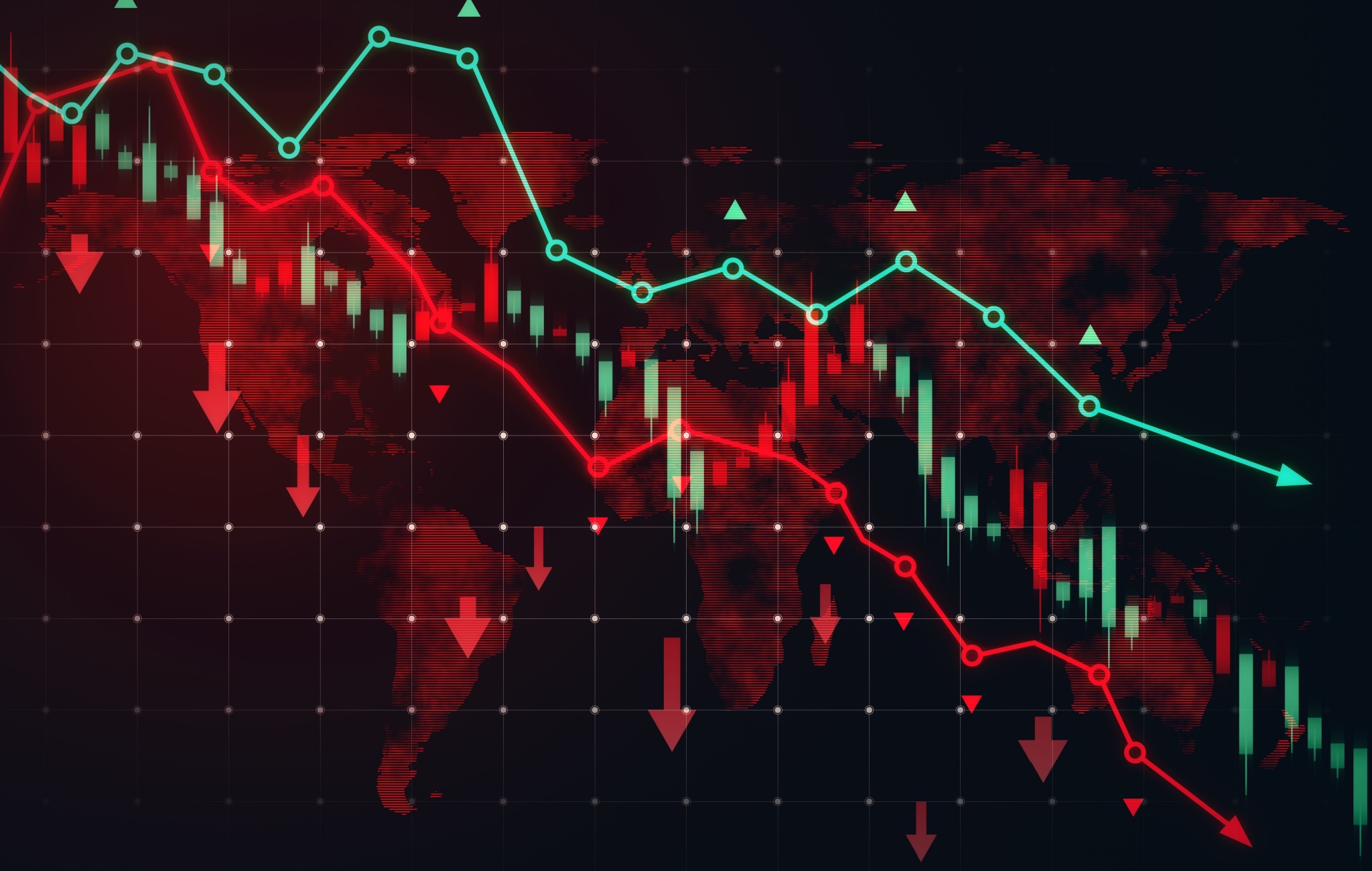Yves here. Michael Hudson has graciously provided us with an overview of his new book, The Collapse of Antiquity: Greece and Rome as Civilization’s Oligarchic Turning Point. It looks at how interest-rate created debt overhangs cement creditor power, creating a class of oligarchs. His new book contends this power shift began in the Greco-Roman era. Hudson below provides a broad historical sweep.
Some additions: the idea of “free markets” as a justification of creditor power is relatively recent, and the libertarian anarchist Milton Friedman was one of the most effective salesman for this ideology. The earlier formulation was “free enterprise” which conveyed the idea that the purpose was to build companies.
By Michael Hudson, a research professor of Economics at University of Missouri, Kansas City, and a research associate at the Levy Economics Institute of Bard College. His latest book is The Collapse of Antiquity: Greece and Rome as Civilization’s Oligarchic Turning Point
Interest-bearing debt grows exponentially, accumulating faster than the economy’s the ability to pay. That growth has increased the power of creditors throughout history, causing crises if the expansion path of debt is not checked by debt writedowns.
Ancient Near Eastern monarchies created such checks when they introduced interest-bearing debt in the third millennium BC. To prevent a creditor oligarchy from emerging to concentrate land ownership, rulers proclaimed Clean Slates that prevented the buildup of agrarian debt from leading to the irreversible loss of personal liberty and land rights. Maintaining self-support land tenure for cultivators preserved their corvée labor obligation to work on public construction projects and serve in the army. In the mid-first millennium BC Judaism adopted such “restorations of order” from Babylonia in the Jubilee Year (Leviticus 25).
The increasing commercialization of life enabled oligarchies to emerge in Greece and Rome, imposing debt bondage and concentrating land ownership in their own hands after overthrowing Rome’s kings in 509 BC. Half a millennium of increasingly violent civil warfare were unable to cancel debts and redistribute land, culminating in the failed revolt of Catiline and the assassination of Julius Caesar.
In Judea, Jesus announced that he had come to restore the Jubilee Year, and the Lord’s Prayer from his Sermon on the Mount called for forgiving debts. His Christian followers denounced usury in their councils, but upon becoming Rome’s official state religion in the 4th century the Church turned away from its early focus on protecting debtors. The Lord’s Prayer wording was re-interpreted to focus on inborn personal sin in the wake of Augustine’s theological victory over the pro-debtor Donatists in North Africa.
Medieval European life became largely local, with agrarian economies using money mainly as a unit-of-account to settle debts at harvest time. The economic surplus concentrated mainly in monastery estates. Church and State were made symbiotic in 800 by Leo III blessing Charlemagne as Holy Roman Emperor. Subsequent popes sanctified the Norman conquests of Sicily by Robert Guiscard in 1059 and of England by William the Conqueror in 1066 in exchange for their pledging their kingdoms as fiefdoms of Rome.
After 1094 the papacy used the Crusades to mobilize large military forces. That required credit, and warfare always has been the main force obliging rulers to borrow. With most lending being to rulers and churches to wage war, the papacy took the lead in abandoning Christianity’s early opposition to interest-bearing debt. The 13th-century Schoolmen drew a legalistic distinction between permissible commercial interest and usury, leaving wide loopholes for credit by the Lombard and Cahorsin bankers sponsored by the papacy. The fact that these bankers were beyond the power of local rulers to tax them left Jewish creditors with little royal fiscal function. England and France confiscated the property of Jews and then expelled them toward the end of the 13th century.
When England’s nobility pressed for parliamentary reform in the Magna Carta (1215) to limit Henry III’s power to raise taxes and take on papal debts to finance Rome’s wars, the papacy backed autocratic royal authority and excommunicated the parliamentary opposition. But after Edward III defaulted in the 14th century, dragging down his Italian bankers with him, creditors began to press for parliamentary reform to make war debts owed by the entire nation, not limited to the royal household. By the 16th century that insistence on parliamentary liability for national war debts enabled the Dutch Republic to gain a military advantage and win its freedom from autocratic Habsburg Spain.
Throughout history, the way in which societies have coped with the dynamics of interest-bearing debt has been the major dynamic transforming the character of their government and its legal philosophy. Military duress enables creditors to insist that governments pledge collateral in the form of land and mineral rights, using debt pressure to privatize the public domain and force creation of monopoly privileges. England created monopolies for trade with India and other regions starting in 1600, followed by the Bank of England with its privilege of privatizing money issue in 1694. The South Sea Company was founded in 1711, emulating France’s Mississippi Company. Both countries organized a debt-for-equity swap, exchanging shares in the great growth industry of the day – the Atlantic slave trade and plantation agriculture – for government bonds. Financial bubbles ever since have been organized by governments trying to free themselves from debt.
The Pro-Creditor Mythology of How Economies Might Operate Without Debt Problems
As modern industrial capitalism has evolved into finance capitalism, creditor interests oppose the ability of governments to create their own money to finance public spending. The aim is to make governments borrow from bankers and bondholders, giving them interest as well as control over what gets funded.
The ideological umbrella for this power grab is to accuse governments of interfering with “free markets,” that is, with the financial sector’s ability to act as society’s central planner in allocating credit. Debt creation is seen only as helping economies grow, not as inflating asset prices for housing, stocks and bonds, obliging homebuyers and retirees to run further into debt to afford access to housing and retirement income. Society’s economic ideology is transformed to accept the concentration of wealth in creditor hands as a natural phenomenon, not a predatory power grab at the expense of society’s overall prosperity.
Automatic stabilizers are said to make government regulation unnecessary, and credit (that is, debt creation) is depicted as productive, not corrosive. What really is at issue is not whether governments are strong or weak as such, but whether they act in the broad public interest to limit creditor claims on the increasingly indebted economy, or protect creditor privileges as “rights” over those of debtors. It is as if business “cycles” do not recur in the context of steadily rising debt/income and debt/asset ratios.
Credit can finance economic growth best when organized as a public utility. But private creditors and bankers seek financial gains for themselves, maximizing claims on debtors without limit. A jockeying for dominance ensues as the magnitude of debt grows to exceed the ability of debtors to pay. Private creditors translate their economic gains into political power, polarizing the distribution of wealth and income by deregulating and untaxing financial gains. These laws of motion produce an oscillation between financial drives gaining dominance over society and a reaction by society as it realizes that the “cleanup costs” of debt are much like those of physical environmental pollution, pushing the overall social balance into deficit.
The interaction between financial dynamics and the economy at large has changed the character of government throughout history. Mesopotamian rulers annulled grain debts, but classical antiquity’s oligarchies used state power to prevent debt cancellation. Christianity took the side of debtors, but the medieval papacy supported English kings, excommunicating advocates of parliamentary checks and balances. Subsequent creditors pressed for parliamentary reform to make entire nations responsible for paying debts, but pressure is rising today to restore public control to subordinate debts – and hence their counterpart creditor claims on debtors – to social needs.
There is some analogy here to what the evolutionary biologist Richard Dawkins calls the “selfish gene” with its drive to replicate itself and grow. A struggle for survival occurs as the dynamic of interest-bearing credit seeks to break free of public control and make the debt overhead irreversible, while the host economy seeks to protect itself from being drained and polarized. A narrowing oligarchy of bondholders press for rent-extracting privileges, privatizing natural resources and monopolies away from the increasingly indebted public domain.
These debt dynamics threaten to run wild in excess of the economy’s ability to pay. To deter public perception of the need to subordinate financial claims to the economy’s own self-preservation, creditors seek to distract attention away from how today’s world is repeating the age-old strains between creditors and debtors, and how debt’s exponential dynamics have led to crises and collapse throughout history.













